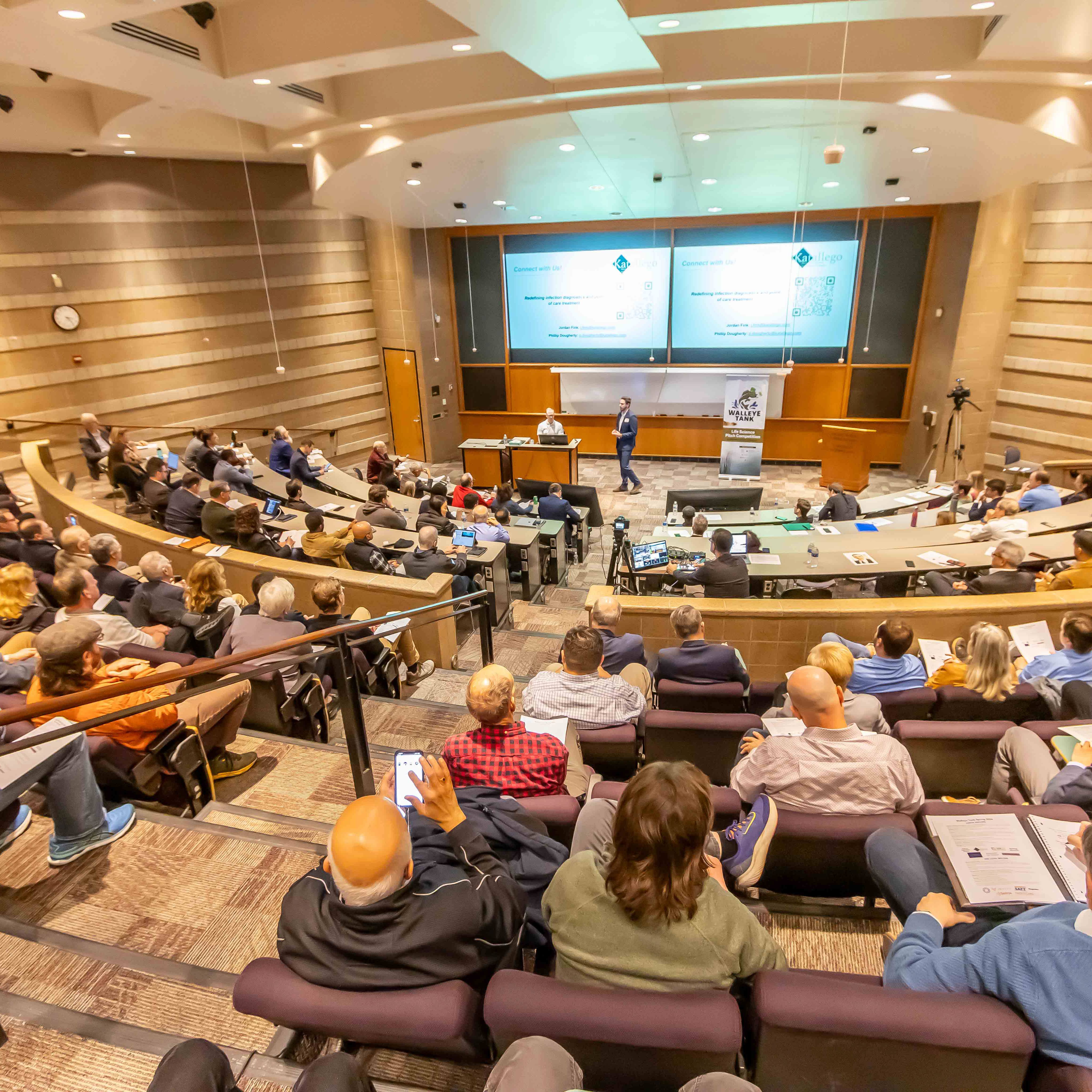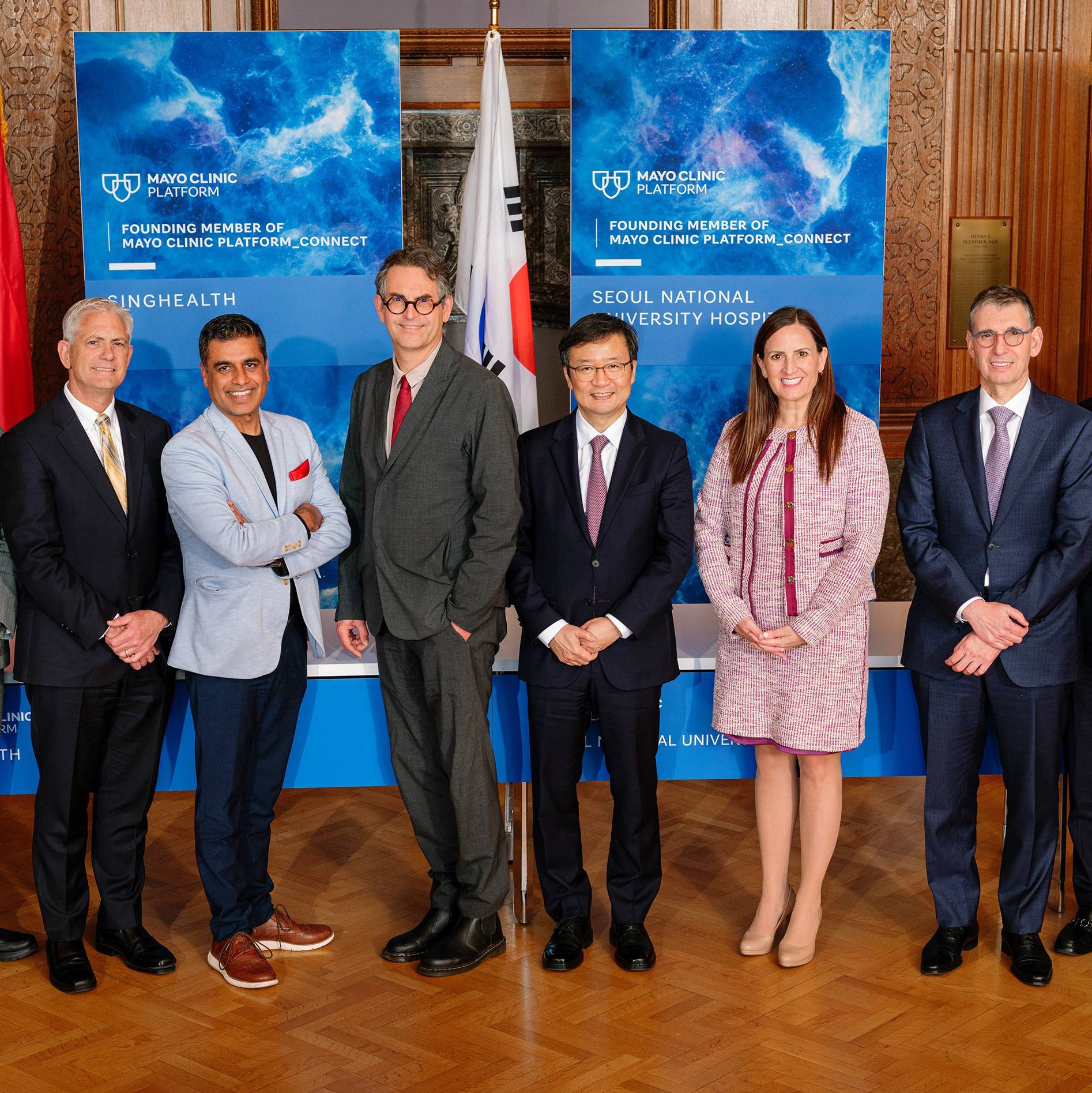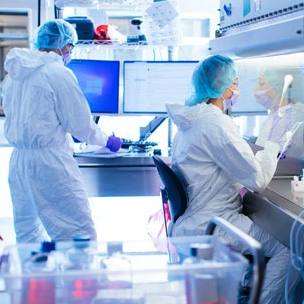-
Research
Uniting a love of math and medicine
Hongfang Liu, Ph.D., the Richard Emslander Professor of Biomedical Informatics in Mayo Clinic College of Medicine and Science, has a full plate. She specializes in applications of artificial intelligence (AI) in medical science and health care — an area of research that's booming at Mayo Clinic and around the world.
Dr. Liu is director of Biomedical Informatics in Mayo Clinic's Center for Clinical and Translational Science. She also was recently named enterprise co-lead of Cancer Informatics and Data Science in the Mayo Clinic Comprehensive Cancer Center.
"Mayo Clinic has a long track record of leading technology innovations in health care," says Dr. Liu. "With significant investment in enterprise platforms and convergence of clinical systems in the past decade, Mayo is positioned to lead the patient-centered and data-driven health care revolution.
Discovering her passion
In high school, a biology teacher noticed Dr. Liu's aptitude for life sciences and suggested she study biomedicine. During her undergraduate years, Dr. Liu dove into mathematics and computer science instead. But, later, during her graduate studies, she rediscovered her love of the life sciences and found a way to combine her interests in the field of biomedical informatics.
"I was attracted to biomedical informatics because it's a scientific discipline that focuses on the intersection of people, processes and technology. It brings all those things together into innovations to improve human health," says Dr. Liu.
Unlocking rich data in electronic health records
Dr. Liu's research has been funded by the National Science Foundation and the National Institutes of Health (NIH) since 2003. Her work focuses on applications of AI and natural language processing. She uses these tools to unlock the rich data contained in clinical narratives, such as physician notes, in electronic health records.
Natural language processing is a branch of AI that makes it possible for computers to understand and analyze written or spoken language — what's known as natural language. Once clinical narratives are made computable, the information contained in them can more readily be used to advance research and improve patient care and health care delivery.
"There is enormous potential for scientific discoveries leading to life-changing cures for patients in this area of research," says Dr. Liu.
In recent years, Dr. Liu has published research demonstrating how natural language processing on electronic health records can be used to help ascertain asthma prognoses, identify skeletal site-specific fractures and assess lifestyle exposures for Alzheimer's disease. Other areas of focus for Dr. Liu and her team include applying AI in clinical settings and developing data-driven decision support tools for patients, health care professionals and health care organizations.
Modeling COVID-19
During the COVID-19 pandemic, Mayo Clinic leaders called on Dr. Liu to join a team developing predictive modeling to monitor the spread and severity of the disease. They provided timely analysis and insights that helped Mayo leaders anticipate and respond to changing needs and opportunities, as described in this paper published in Mayo Clinic Proceedings.
Dr. Liu and her team also published research quantifying the importance of COVID-19 vaccination, and identifying correlations between COVID-19 cases and Google trends data. In addition, Dr. Liu's team contributed extensively to national efforts to use clinical data to address COVID-19 through NIH's National COVID Cohort Collaborative.
"We've demonstrated how biomedical informatics and AI have an important role to play in the response to a pandemic," says Dr. Liu. "What we've learned during the COVID-19 pandemic will make Mayo Clinic and other organizations around the world more prepared to respond to the next public health emergency."
Innovating to improve health equity
A common thread throughout Dr. Liu's research is using biomedical informatics and AI to reduce health disparities and improve health equity.
Public health experts have raised concerns that the use of informatics and AI in research and medicine could lead to digital innovations that exacerbate bias and existing health disparities. However, Dr. Liu also sees the potential for these disciplines to improve health equity.
"Through my work I want to advance digital innovations in medical research, patient care and health care delivery in ways that benefit as many people as possible," says Dr. Liu.
She has her eye on innovations with the potential to benefit the people and communities who need those medical advances the most.
In recent years, Dr. Liu's research has explored rural-urban disparities in the use of patient online services for COVID-19, using AI to assess clinician adherence to asthma guidelines, and analyzing sex differences in adverse drug events.
Dr. Liu foresees rich opportunities for biomedical informatics and AI in research that aims to:
- Use real-world data to understand issues, such as structural bias in health care and the root causes of disparities.
- Develop innovations designed to overcome the digital divide.
- Create community-based health interventions to address health disparities.
This is an area of research primed for growth at Mayo Clinic.
"The future of health care highly depends on the discovery, translation, implementation and dissemination of AI and digital innovations that can deliver clinical excellence and better health for everyone," says Dr. Liu.
Read more about artificial intelligence and biomedical informatics research at Mayo Clinic:
- AI enhances MRI images to identify molecular markers of brain cancer
- Now unstuck, the world is her oyster
- Developing solutions for early detection of pancreatic cancer








